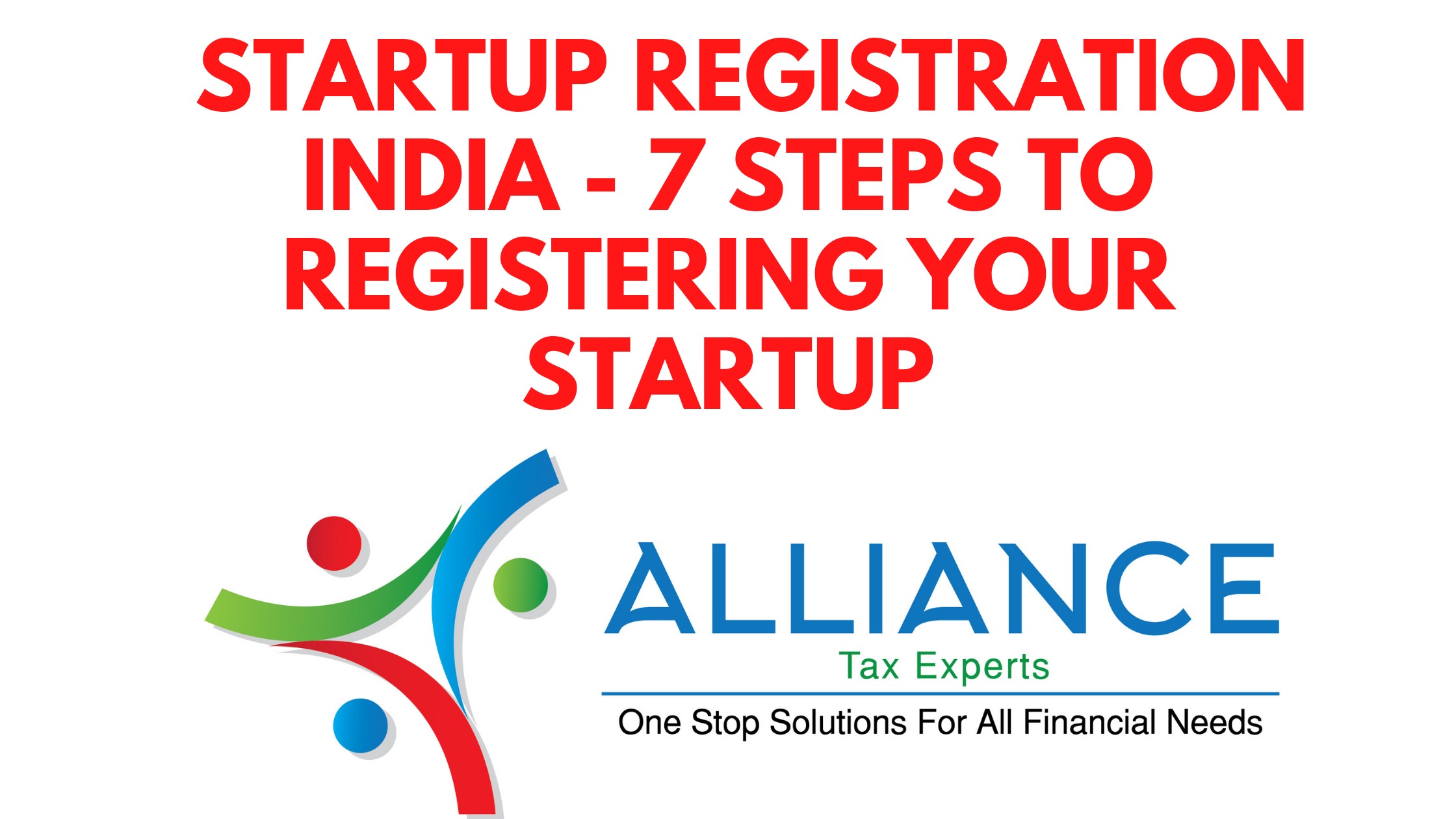
18 Feb
Startup Registration India - 7 Steps to Registering Your Startup
Startup Registration India - 7 Steps to
Registering Your Startup
A startup is a newly established business, usually started
by a small, 1 or group of individuals. What makes it different from other new
businesses is that startups offer new products or services that are not offered
in the same way elsewhere. The keyword is innovative. Businesses either develop
new products/services or redevelop existing products/services.
Startup India
Startups are becoming very popular in India. To develop the
Indian economy and attract talented entrepreneurs, the Government of India under
the leadership of Prime Minister Narendra Modi has launched and promoted the
Startup India initiative to identify and promote startups.
Steps to register your startup under Startup India
Step 1: Register your business
You must first include your business as a private limited
company or partnership firm or limited liability partnership. You have to
follow all the general procedures for registration of any business such as
obtaining incorporation/partnership registration certificate, PAN and other required
compliance.
Step 2: Register with Startup India
Then the business must be registered as a startup. The
whole process is simple and online. All you have to do is log on to Startup
India's website and fill out the form with your business details. Next, enter
the OTP and other details sent to your e-mail, such as startup, name and
startup phase as the type of user. After entering these details, the Startup
India profile will be created.
Once your profile has been created on the website, startups
can apply for various acceleration, incubator/mentorship programs and other
challenges on the website, as well as access to resources such as learning and
development programs, government schemes, state police for startups and
pro-bono service
Step 3: Get DPIIT ID
The next step after creating a profile on the Startup India
website is to get the approval of the Department for Promotion of Industry and
Internal Trade (DPIIT). This recognition helps startups gain benefits such as
access to high-quality intellectual property services and resources, relaxation
of public procurement regulations, self-certification under labour and
environmental laws, easy access to the company, access to funding, and tax
breaks for Tax deductions on consecutive 3 years and investments above
reasonable market value.
To get DPIIT recognition, click on the 'Get Recognized'
button if you are a new user. If you are an existing user, click on the
'Dashboard Button' and then on 'DPIIT Recognition'
Step 4: Recognition application
The 'Recognition Application Details' page opens. Click
'View Details' under the Registration Details section on this page. Fill in the
Startup Recognition Form and click on Submit.
Step 5: Documents for registration
1. Certificate
of incorporation/registration of your startup
2. Director
details
3. Evidence
of concepts like pitch deck/website link/video (in case of authentication /
early traction/scaling stage startup)
4. Patent
and trademark details (optional)
5. PAN
number
Step 6: Identification number
That's all! Upon applying, you will immediately receive an
identification number for your startup. A certificate of identity will be
issued after checking all your documents which is usually done within 2 days
after submitting the details online.
However, be careful when uploading documents. Upon
subsequent verification, if it is found that the required documents have not
been uploaded / incorrect documents have been uploaded or forged documents have
been uploaded, you will have to pay a penalty of 50% of your startup's paid-up
capital. The minimum penalty is Rs. 25,000.
Step 7: Other Areas
1. Patents,
trademarks and/or design registrations: If you need a patent for your
innovation or a trademark for your business, you can easily contact any of the
facilities listed by the government. You only have to bear the statutory fee so
there will be an 80% reduction in the fee.
2. Funding:
One of the major challenges facing many startups is access to finance.
Entrepreneurs fail to attract investors due a to lack of experience, security
or existing cash flow. In addition, the high-risk nature of startups, due to
their failure to draw significant percentages, has left many investors
frustrated.
3. To
provide funding support, the government has set up an initial fund of INR 2,500
crore and a total fund of INR 10,000 crore over 4 years (i.e. INR 2,500 crore
per annum). The fund is in the form of a fund of funds, which means it will not
invest directly in startups but will participate in the capital of SEBI
registered venture funds.
4. Self-certification
under Employment and Labor Law: Startups can self-certify under labour law andlabourronmental
law to reduce their compliance costs. Self-certification is provided to reduce
the regulatory burden so that they can focus on their core business. Startups
are allowed to self-certify their compliance under six labour laws and three
environmental laws for a period of 3 to 5 years from the date of establishment.
5. As
published on the website of the Central Pollution Control Board, 36 units
operating in the white category industry do not require approval under 3 laws
relating to the environment for 3 years.
6. Tax
Exemption: Startups are exempt from income tax for 3 years. But to get these
benefits, it needs to be certified by the Inter-Ministerial Board (IMB). Startups
included on or after April 1, 2016, can apply for income tax relief.
Forgiveness documents
Startup India has changed the structure since the
partition. Now the previous requirements have been omitted. Just need to keep a
lot of documents are forgiven. List of documents not required for registration-
I.
Letter of recommendation
II.
Letter of article
III.
Sanction Letters
IV.
Udyam Aadhaar
V.
MSME Certificate
VI.
GST certificate
Contact for registration
97692010316
#alliancetaxexperts #startupindia #taxconsultantnearme #ca
#cs #privatelimitedcompany #llp #limitedliabilitypartnerhip #dpiit #registration
#msme #nearme